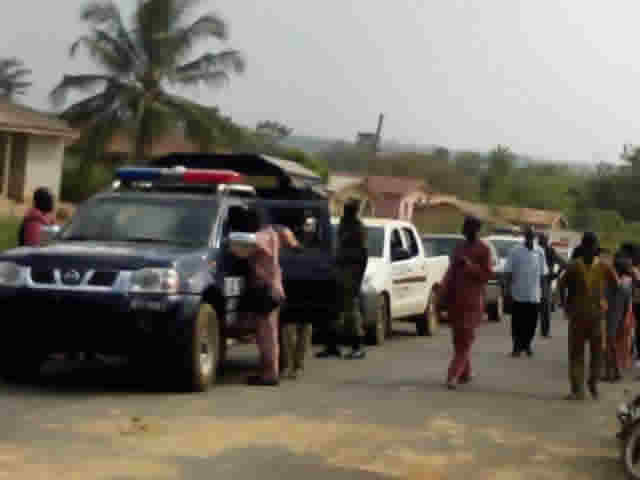On Tuesday, a significant security presence was observed at the Moshood Abiola International Stadium in Kuto, Abeokuta, as soldiers, police, and officers from the Nigeria Security and Civil Defence Corps were deployed in response to the anticipated #FearlessInOctober protest. This event was intended to memorialize the October 1 independence anniversary; however, by 11 am, no protesters had made an appearance at the designated location. This lack of turnout raised questions about the organization and potential participation in the protest known for voicing dissent and advocating for various social issues in Nigeria.
The background to this situation involved a recent ruling by the State High Court in Abeokuta, which imposed restrictions on members of the protest groups in the state. The court specified that protests could only take place at particular venues, including the MKO Abiola Stadium and other designated locations such as the Gateway International Stadium in Sagamu and Dipo Dina Stadium in Ijebu Ode. Despite these guidelines intended to provide a controlled environment for the protests, the absence of protestors at the stadium highlighted potential apathy or fear among the population regarding the implications of participating in such demonstrations.
The lack of protesters was not only a local phenomenon; reports indicated that no members of the #FearlessInOctober group were sighted in any part of Ogun State. This silence could suggest varying factors influencing public engagement, including fear of government backlash, disillusionment with the effectiveness of protests, or possibly a lack of mobilization among the groups advocating for change. The ability of protest movements to rally support may be waning, reflecting a broader sentiment of disengagement from traditional forms of activism.
In addition to the protest-related activities, the annual celebration of Nigeria’s independence, typically marked by gatherings at the stadium, was notably altered this year. The commemoration was moved from the Moshood Abiola Stadium to the Arcade Ground at the Governor’s Office in Oke Mosan. This shift not only signifies an adaptation of the traditional celebration but may also indirectly showcase the state’s apprehension regarding public gatherings due to security concerns surrounding the protest.
While the planned protest did not materialize, the heavy security presence indicates an ongoing tension between civil liberties and state control. Government officials and enforcement agencies are tasked with maintaining order; however, these actions can inadvertently lead to a climate of fear that discourages public expression. A careful balancing act is necessary to uphold citizens’ rights to assembly while also addressing potential security threats, making the government’s approach to these protests a focal point for future discussions about democracy in Nigeria.
As the situation unfolds, it remains to be seen how these developments will impact public sentiment and the future of protest movements in Nigeria. The stark absence of protestors juxtaposed with a significant security force underscores the complexities of civic engagement in a volatile political landscape. Observers will be eager to learn whether this trend continues or if future efforts to mobilize civil action will see renewed vigor in response to ongoing socio-political challenges in the country.


